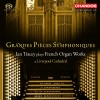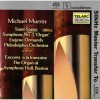Composers
Gigout was born in Nancy, and died in Paris. A pupil of Camille Saint-Saëns, he served as the organist of the French capital's Saint-Augustin Church for 62 years. He became widely known as a teacher and his output as a composer was considerable. Renowned as an expert improviser, he also founded his own music school. His nephew by marriage was Léon Boëllmann, another distinguished French composer and organist.
The 10 pièces pour orgue (composed 1890) include the Toccata in B minor, Gigout's best-known creation, which turns up as a frequent encore at organ recitals. Also fairly often played, and to be found in the same collection, is a Scherzo in E major. Other notable pieces by Gigout are Grand chœur dialogué and Marche religieuse. Gigout's works are now available on several commercial recordings.
His pupils included the aforementioned Boëllmann, André Fleury, Henri Gagnon, André Marchal, André Messager, and Albert Roussel.
Recently Added
| Country: | France |
| Period: | Neoclassicism, Impressionism |
Biography
Gigout was born in Nancy, and died in Paris. A pupil of Camille Saint-Saëns, he served as the organist of the French capital's Saint-Augustin Church for 62 years. He became widely known as a teacher and his output as a composer was considerable. Renowned as an expert improviser, he also founded his own music school. His nephew by marriage was Léon Boëllmann, another distinguished French composer and organist.
The 10 pièces pour orgue (composed 1890) include the Toccata in B minor, Gigout's best-known creation, which turns up as a frequent encore at organ recitals. Also fairly often played, and to be found in the same collection, is a Scherzo in E major. Other notable pieces by Gigout are Grand chœur dialogué and Marche religieuse. Gigout's works are now available on several commercial recordings.
His pupils included the aforementioned Boëllmann, André Fleury, Henri Gagnon, André Marchal, André Messager, and Albert Roussel.

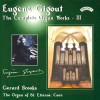

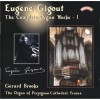


![Essential Organ [CD 2 of 2]](http://static.classicalm.com/repository/collection-cover/small/1308-img1359482896626185.jpg)
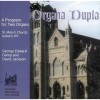
![Great European Organs. 15-Colin Walsh [Lincoln Cathedral]](http://static.classicalm.com/repository/collection-cover/small/869-img1340972819806985.jpg)
